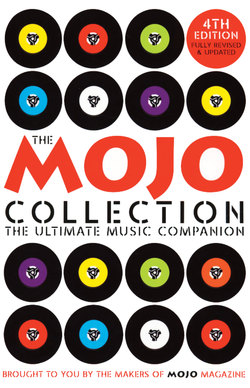Читать книгу The Mojo Collection - Various Mojo Magazine - Страница 31
На сайте Литреса книга снята с продажи.
Joan Baez Joan Baez As important as Dylan in popularising folk music in the ’60s.
ОглавлениеRecord label: Vanguard
Produced: Maynard Solomon
Recorded: Manhattan Towers Hotel Ballroom, New York; July 1960
Released: October 1960
Chart peaks: 9 (UK) 15 (US)
Personnel: Joan Baez (v, g); Fred Hellerman (g)
Track listing: Silver Dagger; East Virginia; Ten Thousand Miles; House Of The Rising Sun; All My Trials; Wildwood Flower; Donna Donna; John Riley; Rake And The Rambling Boy; Little Moses; Mary Hamilton; Henry Martin; El Preso Numero Nuevo
Running time: 46.02
Current CD: Vanguard VMD79594 adds: Girl Of Constant Sorrow; I Know You Rider; John Riley
Further listening: Farewell Angelina (1965)
Further reading: Positively Fourth Street: The Life And Times Of Joan Baez, Bob Dyan And Mimi B (David Hajdu, 2002); www.joanbaez.com
Download: Not currently legally available
In 1960, Joan Baez (then 19) was exactly what the flat, dull and worthy folk scene needed. Unattractiveness was almost a mark of authenticity. That Joan was a striking young raven-haired beauty with a sweet, pure voice certainly did not harm the prospects of her debut album.
She had been a huge hit at the Newport Festival in July the previous year, standing apart from a bill that included Bob Gibson (who invited her there), Pete Seeger, Odetta, Sonny Terry and Brownie McGhee. Unsurprisingly, Joan Baez was a folk revival landmark. No wonder Bob Dylan initially idolised her – his own rise would have been impossible without her. She turned a new younger generation onto folk music – kids who had no time for Pete Seeger singalongs and fresh-faced college boys singing Tom Dooley. It would have been enough if Joan Baez had simply given folk some sex appeal. Yet the content of her debut album also reflected what was happening on the campuses and in the coffee houses, and as one of the first folk soloists to achieve national (and later international) success, she brought the music into the mass market.
Joan Baez was recorded in a hotel ballroom in New York City and produced by Maynard Solomon, to whose label she signed – in preference to CBS – because Solomon was, like Joan, an idealist; he’d signed The Weavers, despite accusations that Pete Seeger was a Communist. She made her home at Vanguard for most of the decade, releasing a staggering 17 albums before a move to A&M. Despite her beautiful singing and the simple arrangements (she had to be persuaded to allow a second guitarist), the album may not be to current tastes; but at the time, its mixture of Carter Family songs (Wildwood Flower), the Negro spiritual All My Trials and a Spanish political song was quite captivating. The ballads – notably John Riley, Silver Dagger and Mary Hamilton – have lasted best.
In America, Joan Baez was an unlikely chart success. It eventually charted in the UK in July 1964, where she enjoyed a Top 10 single a year later with Phil Ochs’ There But For Fortune.
